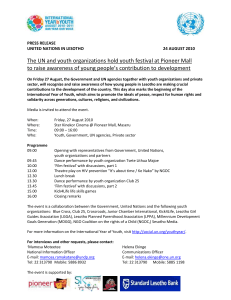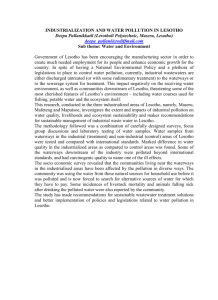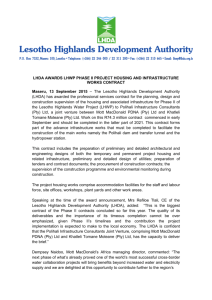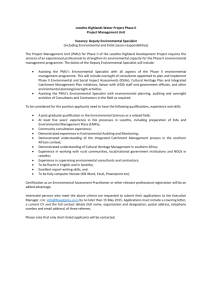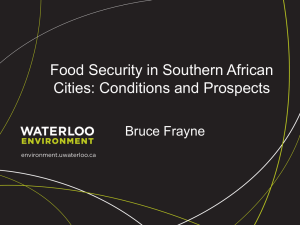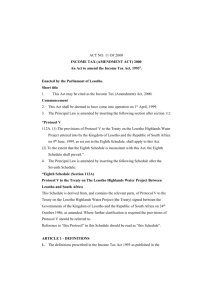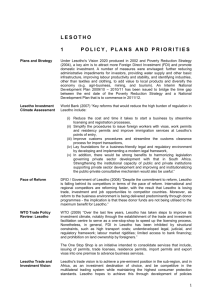NATIONAL COUNCIL OF PROVINCES FOR ORAL REPLY
advertisement
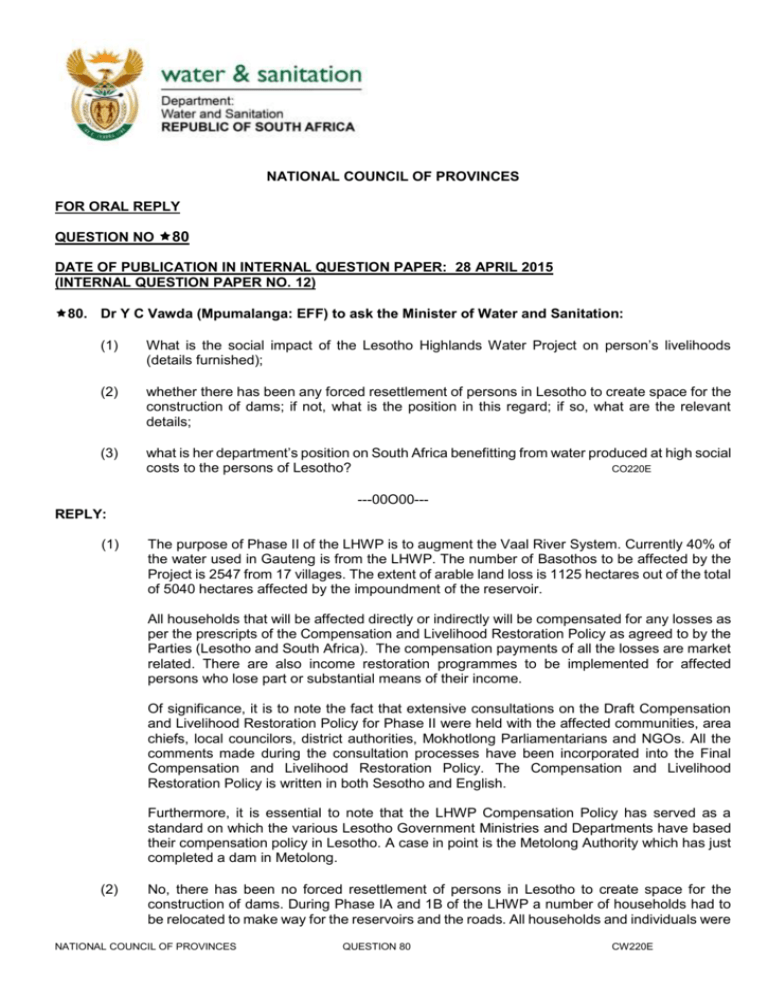
NATIONAL COUNCIL OF PROVINCES FOR ORAL REPLY QUESTION NO 80 DATE OF PUBLICATION IN INTERNAL QUESTION PAPER: 28 APRIL 2015 (INTERNAL QUESTION PAPER NO. 12) 80. Dr Y C Vawda (Mpumalanga: EFF) to ask the Minister of Water and Sanitation: (1) What is the social impact of the Lesotho Highlands Water Project on person’s livelihoods (details furnished); (2) whether there has been any forced resettlement of persons in Lesotho to create space for the construction of dams; if not, what is the position in this regard; if so, what are the relevant details; (3) what is her department’s position on South Africa benefitting from water produced at high social costs to the persons of Lesotho? CO220E ---00O00--- REPLY: (1) The purpose of Phase II of the LHWP is to augment the Vaal River System. Currently 40% of the water used in Gauteng is from the LHWP. The number of Basothos to be affected by the Project is 2547 from 17 villages. The extent of arable land loss is 1125 hectares out of the total of 5040 hectares affected by the impoundment of the reservoir. All households that will be affected directly or indirectly will be compensated for any losses as per the prescripts of the Compensation and Livelihood Restoration Policy as agreed to by the Parties (Lesotho and South Africa). The compensation payments of all the losses are market related. There are also income restoration programmes to be implemented for affected persons who lose part or substantial means of their income. Of significance, it is to note the fact that extensive consultations on the Draft Compensation and Livelihood Restoration Policy for Phase II were held with the affected communities, area chiefs, local councilors, district authorities, Mokhotlong Parliamentarians and NGOs. All the comments made during the consultation processes have been incorporated into the Final Compensation and Livelihood Restoration Policy. The Compensation and Livelihood Restoration Policy is written in both Sesotho and English. Furthermore, it is essential to note that the LHWP Compensation Policy has served as a standard on which the various Lesotho Government Ministries and Departments have based their compensation policy in Lesotho. A case in point is the Metolong Authority which has just completed a dam in Metolong. (2) No, there has been no forced resettlement of persons in Lesotho to create space for the construction of dams. During Phase IA and 1B of the LHWP a number of households had to be relocated to make way for the reservoirs and the roads. All households and individuals were NATIONAL COUNCIL OF PROVINCES QUESTION 80 CW220E compensated in accordance with the prescripts of the Compensation Policy agreed to by the two parties. The LHWP is not the only project that has made way for the construction of the dam and infrastructure. The Ministry of Roads and Transport in Lesotho and Metolong Authority have also resettled people for the construction of roads and dams using the same LHWP Compensation Policy adapted to their own circumstances. (3) Lesotho and South Africa are part of the SADC. Within SADC, there is an understanding that not all member countries have sufficient water and acknowledged the fact that South Africa is a water scarce country hence the SADC Revised Protocol on Shared Watercourses. South Africa together with the Government of the Kingdom of Lesotho has long signed the Treaty of 1986, where they agreed to share their water resources to the benefit of the two countries and its peoples. The LHWP, as part of its social responsibility to the affected persons/households, as a rule has implemented extensive social development programs such as Income restoration, Construction of community infrastructure in the new villages and existing villages receiving some of the relocated households, village water supply and sanitation in all villages within the catchment area of the reservoirs. All advance infrastructure build, such as access roads, accommodation areas, powerlines, clinics, hospitals, etc. are handed over to the Government of Lesotho once the dam and tunnel construction is completed. ---00O00--- NATIONAL COUNCIL OF PROVINCES QUESTION 80 CW220E


